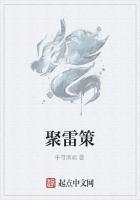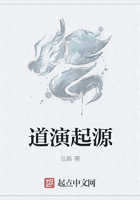"SO YOU SEE," Chang was saying, "we are less barbarian than you expected …"
Conway, later that evening, was not disposed to deny it. He was enjoying that pleasant mingling of physical ease and mental alertness which seemed to him, of all sensations, the most truly civilized. So far, the appointments of Shangri-La had been all that he could have wished, certainly more than he could ever have expected. That a Tibetan monastery should possess a system of central heating was not, perhaps, so very remarkable in an age that supplied even Lhasa with telephones;but that it should combine the mechanics of Western hygiene with so much that was Eastern and traditional, struck him as exceedingly singular. The bath, for instance, in which he had recently luxuriated, had been of a delicate green porcelain, a product, according to inscription, of Akron, Ohio. Yet the native attendant had valeted him in Chinese fashion, cleansing his ears and nostrils, and passing a thin, silk swab under his lower eyelids. He had wondered at the time if and how his three companions were receiving similar attentions.
Conway had lived for nearly a decade in China, not wholly in the bigger cities; and he counted it, all things considered, the happiest part of his life. He liked the Chinese, and felt at home with Chinese ways. In particular he liked Chinese cooking, with its subtle undertones of taste;and his first meal at Shangri-La had therefore conveyed a welcome familiarity. He suspected, too, that it might have contained some herb or drug to relieve respiration, for he not only felt a difference himself, but could observe a greater ease among his fellow guests. Chang, he noticed, ate nothing but a small portion of green salad, and took no wine.
"You will excuse me," he had explained at the outset, "but my diet is very restricted; I am obliged to take care of myself."
It was the reason he had given before, and Conway wondered by what form of invalidism he was afflicted. Regarding him now more closely, he found it difficult to guess his age;his smallish and somehow undetailed features, together with the moist clay texture of his skin, gave him a look that might either have been that of a young man prematurely old or of an old man remarkably well preserved. He was by no means without attractiveness of a kind;a certain stylized courtesy hung about him in a fragrance too delicate to be detected till one had ceased to think about it. In his embroidered gown of blue silk, with the usual side-slashed skirt and tight-ankled trousers, all the hue of water colour skies, he had a cold metallic charm which Conway found pleasing, though he knew it was not everybody's taste.
The atmosphere, in fact, was Chinese rather than specifically Tibetan; and this in itself gave Conway an agreeable sensation of being at home, though again it was one that he could not expect the others to share. The room, too, pleased him;it was admirably proportioned, and sparingly adorned with tapestries and one or two fine pieces of lacquer. Light was from paper lanterns, motionless in the still air. He felt a soothing comfort of mind and body, and his renewed speculations as to some possible drug were hardly apprehensive. Whatever it was, if it existed at all, it had relieved Barnard's breathlessness and Mallinson's truculence;both had dined well, finding satisfaction in eating rather than talk. Conway also had been hungry enough, and was not sorry that etiquette demanded gradualness in approaching matters of importance. He had never cared for hurrying a situation that was itself enjoyable, so that the technique well suited him.
Not, indeed, until he had begun a cigarette did he give a gentle lead to his curiosity;he remarked then, addressing Chang:"You seem a very fortunate community, and most hospitable to strangers. I don't imagine, though, that you receive them often."
"Seldom indeed," replied the Chinese, with measured stateliness. "It is not a traveled part of the world."
Conway smiled at that. "You put the matter mildly. It looked to me, as I came, the most isolated spot I ever set eyes on. A separate culture might flourish here without contamination from the outside world."
"Contamination, would you say?"
"I use the word in reference to dance bands, cinemas, electric signs, and so on. Your plumbing is quite rightly as modern as you can get it, the only certain boon, to my mind, that the East can take from the West. I often think that the Romans were fortunate; their civilization reached as far as hot baths without touching the fatal knowledge of machinery."
Conway paused. He had been talking with an impromptu fluency which, though not insincere, was chiefly designed to create and control an atmosphere. He was rather good at that sort of thing. Only a willingness to respond to the superfine courtesy of the occasion prevented him from being more openly curious.
Miss Brinklow, however, had no such scruples. "Please," she said, though the word was by no means submissive, "will you tell us about the monastery?"
Chang raised his eyebrows in very gentle deprecation of such immediacy. "It will give me the greatest of pleasure, madam, so far as I am able. What exactly do you wish to know?"
"First of all, how many are there of you here, and what nationality do you belong to?" It was clear that her orderly mind was functioning no less professionally than at the Baskul mission-house.
Chang replied: "Those of us in full lamahood number about fifty, and there are a few others, like myself, who have not yet attained to complete initiation. We shall do so in due course, it is to be hoped. Till then we are half-lamas, postulants, you might say. As for our racial origins, there are representatives of a great many nations among us, though it is perhaps natural that Tibetans and Chinese make up the majority."
Miss Brinklow would never shirk a conclusion, even a wrong one. "I see. It's really a native monastery, then. Is your head lama a Tibetan or a Chinese?"
"No."
"Are there any English?"
"Several."
"Dear me, that seems very remarkable." Miss Brinklow paused only for breath before continuing: "And now, tell me what you all believe in."
Conway leaned back with somewhat amused expectancy. He had always found pleasure in observing the impact of opposite mentalities;and Miss Brinklow's girl-guide forthrightness applied to lamaistic philosophy promised to be entertaining. On the other hand, he did not wish his host to take fright. "That's rather a big question,"he said, temporizingly.
But Miss Brinklow was in no mood to temporize. The wine, which had made the others more reposeful, seemed to have given her an extra liveliness. "Of course,"she said with a gesture of magnanimity, "I believe in the true religion, but I'm broad-minded enough to admit that other people, foreigners, I mean, are quite often sincere in their views. And naturally in a monastery I wouldn't expect to be agreed with."
Her concession evoked a formal bow from Chang. "But why not, madam?" he replied in his precise and flavored English. "Must we hold that because one religion is true, all others are bound to be false?"
"Well, of course, that's rather obvious, isn't it?"
Conway again interposed. "Really, I think we had better not argue. But Miss Brinklow shares my own curiosity about the motive of this unique establishment."
Chang answered rather slowly and in scarcely more than a whisper:"If I were to put it into a very few words, my dear sir, I should say that our prevalent belief is in moderation. We inculcate the virtue of avoiding excess of all kinds—even including, if you will pardon the paradox, excess of virtue itself. In the valley which you have seen, and in which there are several thousand inhabitants living under the control of our order, we have found that the principle makes for a considerable degree of happiness. We rule with moderate strictness, and in return we are satisfied with moderate obedience. And I think I can claim that our people are moderately sober, moderately chaste, and moderately honest."
Conway smiled. He thought it well expressed, besides which it made some appeal to his own temperament. "I think I understand. And I suppose the fellows who met us this morning belonged to your valley people?"
"Yes. I hope you had no fault to find with them during the journey?"
"Oh, no, none at all. I'm glad they were more than moderately sure-footed, anyhow. You were careful, by the way, to say that the rule of moderation applied to them—am I to take it that it does not apply to your priesthood also?"
But at that Chang could only shake his head. "I regret, sir, that you have touched upon a matter which I may not discuss. I can only add that our community has various faiths and usages, but we are most of us moderately heretical about them. I am deeply grieved that at the moment I cannot say more."
"Please don't apologize. I am left with the pleasantest of speculations."Something in his own voice, as well as in his bodily sensations, gave Conway a renewed impression that he had been very slightly doped.
Mallinson appeared to have been similarly affected, though he seized the present chance to remark:"All this has been very interesting, but I really think it's time we began to discuss our plans for getting away. We want to return to India as soon as possible. How many porters can we be supplied with?"
The question, so practical and uncompromising, broke through the crust of suavity to find no sure foothold beneath. Only after a longish interval came Chang's reply:"Unfortunately, Mr. Mallinson, I am not the proper person to approach. But in any case, I hardly think the matter could be arranged immediately."
"But something has got to be arranged! We've all got our work to return to, and our friends and relatives will be worrying about us. We simply must return. We're obliged to you for receiving us like this, but we really can't slack about here doing nothing. If it's at all feasible, we should like to set out not later than tomorrow. I expect there are a good many of your people who would volunteer to escort us—we should make it well worth their while, of course."
Mallinson ended nervously, as if he had hoped to be answered before saying so much; but he could extract from Chang no more than a quiet and almost reproachful: "But all this, you know, is scarcely in my province."
"Isn't it? Well, perhaps you can do something, at any rate. If you could get us a large scale map of the country, it would help. It looks as if we shall have a long journey, and that's all the more reason for ****** an early start. You have maps, I suppose? "
"Yes, we have a great many."
"We'll borrow some of them, then, if you don't mind. We can return them to you afterwards. I suppose you must have communications with the outer world from time to time. And it would be a good idea to send messages ahead, also, to reassure our friends. How far away is the nearest telegraph line?"
Chang's wrinkled face seemed to have acquired a look of infinite patience, but he did not reply.
Mallinson waited a moment and then continued: "Well, where do you send to when you want anything? Anything civilized, I mean."A touch of scaredness began to appear in his eyes and voice. Suddenly he thrust back his chair and stood up. He was pale, and passed his hand wearily across his forehead. "I'm so tired,"he stammered, glancing round the room. "I don't feel that any of you are really trying to help me. I'm only asking a ****** question. It's obvious you must know the answer to it. When you had all these modern baths installed, how did they get here? "
There followed another silence.
"You won't tell me, then? It's part of the mystery of everything else, I suppose. Conway, I must say I think you're damned slack. Why don't you get at the truth? I'm all in, for the time being—but—tomorrow, mind—we must get away tomorrow—it's essential—"
He would have slid to the floor had not Conway caught him and helped him to a chair. Then he recovered a little, but did not speak.
"Tomorrow he will be much better," said Chang gently. "The air here is difficult for the stranger at first, but one soon becomes acclimatized."
Conway felt himself waking from a trance. "Things have been a little trying for him," he commented with rather rueful mildness. He added, more briskly: "I expect we're all feeling it somewhat. I think we'd better adjourn this discussion and go to bed. Barnard, will you look after Mallinson? And I'm sure you're in need of sleep too, Miss Brinklow." There had been some signal given, for at that moment a servant appeared. "Yes, we'll get along—good night—good night—I shall soon follow."
He almost pushed them out of the room, and then, with a scantness of ceremony that was in marked contrast with his earlier manner, turned to his host. Mallinson's reproach had spurred him.
"Now, sir, I don't want to detain you long, so I'd better come to the point. My friend is impetuous, but I don't blame him, he's quite right to make things clear. Our return journey has to be arranged, and we can't do it without help from you or from others in this place. Of course, I realize that leaving to-morrow is impossible, and for my own part I hope to find a minimum stay quite interesting. But that, perhaps, is not the attitude of my companions. So if it's true, as you say, that you can do nothing for us yourself, please put us in touch with some one else who can."
The Chinese answered: "You are wiser than your friends, my dear sir, and therefore you are less impatient. I am glad."
"That's not an answer."
Chang began to laugh, a jerky high pitched chuckle so obviously forced that Conway recognized in it the polite pretence of seeing an imaginary joke with which the Chinese "saves face" at awkward moments.
"I feel sure you have no cause to worry about the matter," came the reply, after an interval. "No doubt in due course we shall be able to give you all the help you need. There are difficulties, as you can imagine, but if we all approach the problem sensibly, and without undue haste—"
"I'm not suggesting haste. I'm merely seeking information about porters."
"Well, my dear sir, that raises another point. I very much doubt whether you will easily find men willing to undertake such a journey. They have their homes in the valley, and they don't care for leaving them to make long and arduous trips outside."
"They can be prevailed upon to do so, though, or else why and where were they escorting you this morning?"
"This morning? Oh, that was quite a different matter."
"In what way? Weren't you setting out on a journey when I and my friends chanced to come across you? "
There was no response to this, and presently Conway continued in a quieter voice:"I understand. Then it was not a chance meeting. I had wondered all along, in fact. So you came there deliberately to intercept us. That suggests you must have known of our arrival beforehand. And the interesting question is, How?"
His words laid a note of stress amidst the exquisite quietude of the scene. The lantern light showed up the face of the Chinese;it was calm and statuesque. Suddenly, with a small gesture of the hand, Chang broke the strain;pulling aside a silken tapestry, he und****d a window leading to a balcony. Then, with a touch upon Conway's arm, he led him into the cold crystal air.
"You are clever,"he said dreamily, "but not entirely correct. For that reason I should counsel you not to worry your friends by these abstract discussions. Believe me, neither you nor they are in any danger at Shangri-La."
"But it isn't danger we're bothering about. It's delay."
"I realize that. And of course there may be a certain delay, quite unavoidably."
"If it's only for a short time, and genuinely unavoidable, then naturally we shall have to put up with it as best we can."
"How very sensible, for we desire nothing more than that you and your companions should enjoy your stay here."
"That's all very well, and as I told you, in a personal sense I can't say I shall mind a great deal. It's a new and interesting experience, and in any case, we need some rest."
He was gazing upward to the gleaming pyramid of Karakal. At that moment, in bright moonlight, it seemed as if a hand reached high might just touch it; it was so brittle-clear against the blue immensity beyond.
"Tomorrow," said Chang, "you may find it even more interesting. And as for rest, if you are fatigued, there are not many better places in the world."
Indeed, as Conway continued to gaze, a deeper repose overspread him, as if the spectacle were as much for the mind as for the eye. There was hardly any stir of wind, in contrast to the upland gales that had raged the night before;the whole valley, he perceived, was a land-locked harbor, with Karakal brooding over it, lighthouse-fashion. The simile grew as he considered it, for there was actually light on the summit, an ice-blue gleam that matched the splendor it reflected. Something prompted him then to enquire the literal interpretation of the name, and Chang's answer came as a whispered echo of his own musing.
"Karakal, in the valley patois, means Blue Moon," said the Chinese.
Conway did not pass on his conclusion that the arrival of himself and party at Shangri-La had been in some way expected by its inhabitants. He had had it in mind that he must do so, and he was aware that the matter was important; but when morning came his awareness troubled him so little, in any but a theoretical sense, that he shrank from being the cause of greater concern in others. One part of him insisted that there was something distinctly queer about the place, that the attitude of Chang on the previous evening had been far from reassuring, and that the party were virtually prisoners unless and until the authorities chose to do more for them. And it was clearly his duty to compel them to do this. After all, he was a representative of the British Government, if nothing else; it was iniquitous that the inmates of a Tibetan monastery should refuse him any proper request … That, no doubt, was the normal official view that would be taken; and part of Conway was both normal and official. No one could better play the strong man on occasions;during those final difficult days before the evacuation he had behaved in a manner which (he reflected wryly) should earn him nothing less than a knighthood and a Henty school prize novel entitled With Conway at Baskul. To have taken on himself the leadership of some scores of mixed civilians, including women and children, to have sheltered them all in a small consulate during a hot-blooded revolution led by anti-foreign agitators, and to have bullied and cajoled the revolutionaries into permitting a wholesale evacuation by air, it was not, he felt, a bad achievement. Perhaps by pulling wires and writing interminable reports, he could wangle something out of it in the next New Year Honors. At any rate it had won him Mallinson's fervent admiration. Unfortunately, the youth must now be finding him so much more of a disappointment. It was a pity, of course, but Conway had grown used to people liking him only because they misunderstood him. He was not genuinely one of those resolute, strong-jawed, hammer-and-tongs empire builders; the semblance he had given was merely a little one-act play, repeated from time to time by arrangement with fate and the Foreign Office, and for a salary which any one could turn up in the pages of Whitaker.
The truth was, the puzzle of Shangri-La, and of his own arrival there, was beginning to exercise over him a rather charming fascination. In any case he found it hard to feel any personal misgivings. His official job was always liable to take him into odd parts of the world, and the odder they were, the less, as a rule, he suffered from boredom; why, then, grumble because accident, instead of a chit from Whitehall, had sent him to this oddest place of all?
He was, in fact, very far from grumbling. When he rose in the morning and saw the soft lapis blue of the sky through his window, he would not have chosen to be elsewhere on earth either in Peshawar or Piccadilly. He was glad to find that on the others, also, a night's repose had had a heartening effect. Barnard was able to joke quite cheerfully about beds, baths, breakfasts, and other hospitable amenities. Miss Brinklow admitted that the most strenuous search of her apartment had failed to reveal any of the drawbacks she had been well prepared for. Even Mallinson had acquired a touch of half sulky complacency.
"I suppose we shan't get away today after all,"he muttered, "unless somebody looks pretty sharp about it. Those fellows are typically Oriental, you can't get them to do anything quickly and efficiently."
Conway accepted the remark. Mallinson had been out of England just under a year; long enough, no doubt, to justify a generalization which he would probably still repeat when he had been out for twenty. And it was true, of course, in some degree. Yet to Conway it did not appear that the Eastern races were abnormally dilatory, but rather that Englishmen and Americans charged about the world in a state of continual and rather preposterous fever-heat. It was a point of view that he hardly expected any fellow Westerner to share, but he was more faithful to it as he grew older in years and experience. On the other hand, it was true enough that Chang was a subtle quibbler and that there was much justification for Mallinson's impatience. Conway had a slight wish that he could feel impatient too;it would have been so much easier for the boy.
He said:"I think we'd better wait and see what today brings. It was perhaps too optimistic to expect them to do anything last night."
Mallinson looked up sharply. "I suppose you think I made a fool of myself, being so urgent? I couldn't help it;I thought that Chinese fellow was damned fishy, and I do still. Did you succeed in getting any sense out of him after I'd gone to bed? "
"We didn't stay talking long. He was rather vague and noncommittal about most things."
"We shall jolly well have to keep him up to scratch today."
"No doubt," agreed Conway, without marked enthusiasm for the prospect. "Meanwhile this is an excellent breakfast."
It consisted of pomelo, tea, and chupatties, perfectly prepared and served. Towards the finish of the meal Chang entered and with a little bow began the exchange of politely conventional greetings which, in the English language, sounded just a trifle unwieldy. Conway would have preferred to talk in Chinese, but so far he had not let it be known that he spoke any Eastern tongue; he felt it might be a useful card up his sleeve.
He listened gravely to Chang's courtesies, and gave assurances that he had slept well and felt much better. Chang expressed his pleasure at that, and added:"Truly, as your national poet says, 'Sleep knits up the raveled sleeve of care. '"
This display of erudition was not too well received. Mallinson answered with that touch of scorn which any healthy-minded young Englishman must feel at the mention of poetry. "I suppose you mean Shakespeare, though I don't recognize the quotation. But I know another one that says'Stand not upon the order of your going, but go at once. 'Without being impolite, that's rather what we should all like to do. And I want to hunt round for those porters right away, this morning, if you've no objection."
The Chinese received the ultimatum impassively, replying at length:"I am sorry to tell you that it would be of little use. I fear we have no men available who would be willing to accompany you so far from their homes."
"But good God, man, you don't suppose we're going to take that for an answer, do you?"
"I am sincerely regretful, but I can suggest no other."
"You seem to have figured it all out since last night,"put in Barnard."You weren't nearly so dead sure of things then."
"I did not wish to disappoint you when you were so tired from your journey. Now, after a refreshing night, I am in hope that you will see matters in a more reasonable light."
"Look here,"intervened Conway briskly, "this sort of vagueness and prevarication won't do. You know we can't stay here indefinitely. It's equally obvious that we can't get away by ourselves. What, then, do you propose?"
Chang smiled with a radiance that was clearly for Conway alone. "My dear sir, it is a pleasure to make the suggestion that is in my mind. To your friend's attitude there was no answer, but to the demand of a wise man there is always a response. You may recollect that it was remarked yesterday, again by your friend, I believe, that we are bound to have occasional communication with the outside world. That is quite true. From time to time we require certain things from distant entrep?ts. ts, and it is our habit to obtain them in due course, by what methods and with what formalities I need not trouble you. The point of importance is that such a consignment is expected to arrive shortly, and as the men who make delivery will afterwards return, it seems to me that you might manage to come to some arrangement with them. Indeed I cannot think of a better plan, and I hope, when they arrive—"
"When do they arrive?"interrupted Mallinson bluntly.
"The exact date is, of course, impossible to forecast. You have yourself had the the experience of the difficulty of movement in this part of the world. A hundred things may happen to cause uncertainty, hazards of weather—"
Conway again intervened. "Let's get this clear. You're suggesting that we should employ as porters the men who are shortly due here with some goods. That's not a bad idea as far as it goes, but we must know a little more about it. First, as you've already been asked, when are these people expected? And second, where will they take us? "
"That is a question you would have to put to them."
"Would they take us to India?"
"It is hardly possible for me to say."
"Well, let's have an answer to the other question. When will they be here? I don't ask for a date, I just want some idea whether it's likely to be next week or next year."
"It might be about a month from now. Probably not more than two months."
"Or three, four, or five months,"broke in Mallinson hotly."And you think we're going to wait here for this convoy or caravan or whatever it is to take us God knows where at some completely vague time in the distant future?"
"I think, sir, the phrase 'distant future' is hardly appropriate. Unless something unforeseen occurs, the period of waiting should not be longer than I have said."
"But two months! Two months in this place! It's preposterous! Conway, you surely can't contemplate it! Why, two weeks would be the limit! "
Chang gathered his gown about him in a little gesture of finality. "I am sorry. I did not wish to offend. The lamasery continues to offer all of you its utmost hospitality for as long as you have the misfortune to remain. I can say no more."
"You don't need to,"retorted Mallinson furiously. "And if you think you've got the whip hand over us, you'll soon find you're damn well mistaken! We'll get all the porters we want, don't worry. You can bow and scrape and say what you like—"
Conway laid a restraining hand on his arm. Mallinson in a temper presented a child-like spectacle;he was apt to say anything that came into his head, regardless alike of point and decorum. Conway thought it readily forgivable in one so constituted and circumstanced, but he feared it might affront the more delicate susceptibilities of a Chinese. Fortunately Chang had ushered himself out, with admirable tact, in good time to escape the worst.















